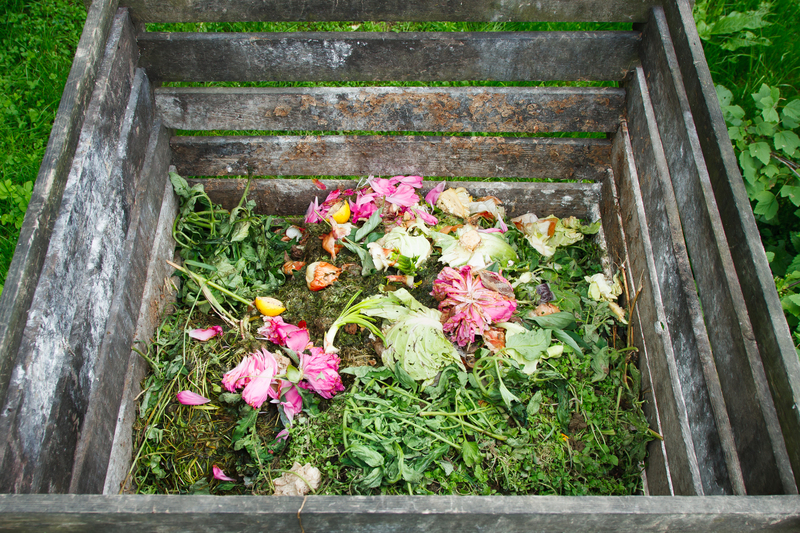The Eco-Friendly Perks of Metal Recycling Unveiled
In today's environmentally conscious world, metal recycling has emerged as a significant player in the quest for sustainability. As natural resources continue to decline, understanding the eco-friendly benefits of recycling metals has become crucial. Through recycling, we not only conserve resources but also contribute to a cleaner, greener planet. This article explores the various environmental advantages of recycling metals, offering insight into why this practice is essential for preserving our world.
Understanding Metal Recycling
Metal recycling refers to the process of recovering scrap or waste metal and reprocessing it into useful materials. Unlike other materials, metals retain their properties, which makes them highly sustainable and perfect for recycling. There are two primary categories of metals that are recycled:
- Ferrous Metals: These metals contain iron and are magnetic. Examples include steel and cast iron. Ferrous metals are typically used in constructing buildings, infrastructure, and automobiles.
- Non-Ferrous Metals: These metals do not contain iron and are non-magnetic. Popular examples include aluminum, copper, lead, zinc, and tin. These metals are used in various applications, from electronics to window frames.

The Environmental Benefits of Metal Recycling
Energy Conservation
One of the most profound eco-friendly benefits of metal recycling is energy conservation. The process of mining, refining, and shaping metals from raw materials is highly energy-intensive. Recycling, on the other hand, consumes significantly less energy:
- Recycling aluminum saves up to 95% of the energy required to produce it from raw ore.
- For steel, recycling can save approximately 60-74% of energy.
This reduction in energy consumption also corresponds to lower greenhouse gas emissions, making recycling a key component in fighting climate change.
Preservation of Natural Resources
Naturally, mining for new metal deposits leads to the depletion of the earth's natural resources. By recycling metals, we significantly reduce the need for destructive mining processes, thereby preserving valuable resources. Additionally, recycling reduces the demand for water and conserves these critical resources for future generations.
Reduction in Pollution
The eco-friendly aspects of metal recycling extend to the reduction of pollution. Mining and refining metals release harmful pollutants into the air, water, and soil. Recycling, in contrast, decreases pollution in several ways:
- It minimizes industrial discharges into water and decreases soil and water contamination.
- Reduces air pollution caused by extracting and processing metals.
By opting for metal recycling, we mitigate harmful environmental footprints and promote cleaner air and water quality globally.
Waste Reduction in Landfills
With increasing populations, landfill spaces are becoming scarce. Metal recycling effectively addresses this issue by diverting scrap metals away from landfills. Items such as old cars, appliances, and construction debris contribute to unnecessary landfill burdens. Recycling helps in reducing these volumes, enabling better waste management.
Economic Benefits of Metal Recycling
Job Creation
Beyond its environmental perks, metal recycling bolsters the economy by creating jobs. The process involves collection, sorting, transportation, and transformation of metals, which opens up numerous employment opportunities:
- It supports jobs in the collection and processing industry.
- Encourages innovation and development of new technologies and recycling methods.
According to industry studies, recycling metal contributes significantly more jobs compared to the traditional waste disposal industry, thereby stimulating economic growth.
Cost Efficiency
Recycling metals is often more cost-effective than mining new materials. The lower energy requirements and resource preservation translate into reduced production costs. Manufacturers benefit immensely as recycling metals can lower the cost of raw materials, enhancing competitiveness and profitability. These savings can result in consumer benefits in the form of lowered pricing for products.

Ways to Promote Metal Recycling
Promoting metal recycling hinges on increased awareness and accessibility. Here are several ways individuals and businesses can help:
- Education: Enhance educational programs that highlight the importance and benefits of metal recycling.
- Incentives: Governments can provide incentives such as tax reductions or grants to organizations that practice recycling.
- Infrastructure Development: Invest in recycling facilities and programs to make metal recycling more accessible to businesses and communities.
- Corporate Responsibility: Encourage businesses to develop and maintain green practices, including commitment to recycling.
Conclusion: Embracing Metal Recycling for a Sustainable Future
Recycling metals is undeniably beneficial for our planet, offering substantial environmental, economic, and social advantages. As we strive for a sustainable future, metal recycling stands out as an effective tool to reduce energy consumption, minimize pollution, and preserve natural resources. By embracing metal recycling practices and promoting awareness, we can make significant strides towards environmental conservation. Let's join hands in making the planet a cleaner, greener place for future generations by optimizing and valuing the perks of metal recycling.